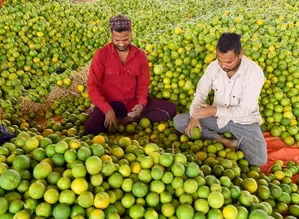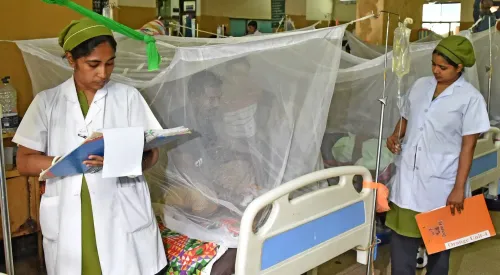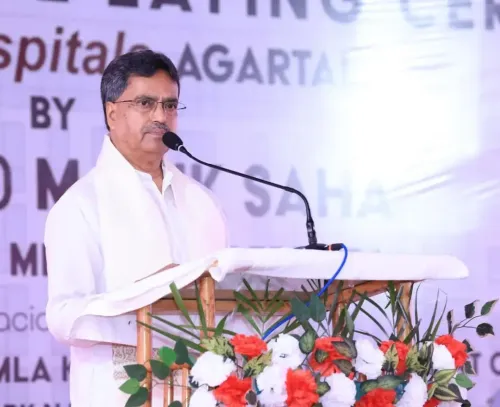How Will the Clean Plant Programme Strengthen India’s Horticulture and Empower Farmers?

Synopsis
Key Takeaways
- Nine Clean Plant Centres to be set up across India.
- Investment of Rs 1,765.67 crore supported by a $98 million loan.
- Focus on crucial fruit crops: grapes, oranges, and pomegranates.
- Large nurseries can receive up to Rs 3 crore each.
- Annual production of 8 crore disease-free seedlings.
New Delhi, Sep 21 (NationPress) The government announced the establishment of nine Clean Plant Centres across India as part of the newly sanctioned Rs 1,765.67 crore Clean Plant Programme (CPP) on Sunday.
This initiative is designed to enhance India's horticulture sector by supplying virus-free planting material, according to an official statement. A loan of $98 million from the Asian Development Bank underpins this initiative, which targets essential fruit crops, including grapes, oranges, and pomegranates.
Among the nine centres, three will be established in Maharashtra with an investment of Rs 300 crore: Pune for grapes, Nagpur for oranges, and Solapur for pomegranates. Large nurseries will receive support of up to Rs 3 crore each, whereas medium units will benefit from Rs 1.5 crore in assistance under this scheme, collectively producing 8 crore disease-free seedlings every year.
The government stated that this programme will boost yields, improve fruit quality, and shield small-scale farmers from biotic and abiotic challenges.
The Indian Council of Agricultural Research is responsible for overseeing technical advancements and facilitating capacity building. Currently, 578 grapevine samples from seven states have been evaluated, while 535 apple samples from Jammu and Kashmir, Himachal Pradesh, Uttarakhand, and Punjab are undergoing testing with hazard analysis in progress.
An official CPP website has been launched as a central resource hub for updates and insights aimed at transforming horticulture in India, as noted in the statement.
Moreover, a national laboratory will be established in Pune to conduct research on original plant species under CPP. From January to March, teams from ICAR, NHB, and ADB assessed nursery ecosystems, design, operations, and cost structures. Subsequently, they performed lab evaluations and enhanced diagnostic and computational capabilities.
They also visited public and private laboratories to develop a bioinformatics pipeline for HTS data analysis under CPP. This will enable scientists to detect viruses in a variety of crops more quickly and securely test nursery plants to ensure their health and safety.
If the acquired plant material tests negative, it will undergo re-testing before being utilized for propagating mother plants, the release highlighted.









